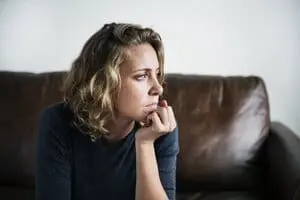Whatever one’s position on abortion, it’s hard to dispute that the debate has ramped up radically over the last year. In more than a dozen states, legislatures have passed or are considering laws that severely restrict—or ban—nearly all women from ending their pregnancies. Many of these new rulings already face legal challenges, but antichoice groups vow to fight back. Most of the new laws are exceedingly harsh: some outlaw abortions at six weeks, when many women don’t even know they’re pregnant. Other statutes make no exceptions for rape or incest. Alabama’s new law goes still further: doctors can be charged with a felony for performing abortions, punishable by up to 99 years in prison.
And then there’s Georgia. On May 7th of this year, Governor Brian Kemp signed the most extreme piece of legislation yet, stipulating that a woman who gets an abortion can be charged with murder and face possible life imprisonment or even death. If she travels to another state to terminate her pregnancy, she can be charged with conspiracy to commit murder.
The media have widely covered this stepped-up antiabortion campaign, with numerous outlets debating whether the new laws threaten women’s freedom, safety, and right to control their own bodies. Much less discussed are the emotional costs of bringing an unwanted baby into the world. Research has demonstrated that greater poverty, medical problems, difficulties with intimate partners, and child-development issues frequently attend unwanted birth. Intuitively, therapists might assume that women would suffer increased mental health difficulties as a result of being denied an abortion.
But that’s not the conclusion of a controversial study that’s widely considered the most thorough research conducted on the issue so far. “There’s no evidence that women who are denied abortions experience more mental health problems than women who get them,” says Antonia Biggs, a research psychologist at the University of California at San Francisco (UCSF) and lead author of a large study comparing the two groups of women.
Published in JAMA Psychiatry in 2016 and known as the Turnaway Study, the prospective, longitudinal research project recruited 956 women from 30 abortion facilities in 21 states to ascertain the comparative mental health and well-being of women after receiving—or being denied—an abortion. The study subjects had been denied an abortion because they’d slightly exceeded the gestational age limit, while women who were permitted to terminate were slightly below that limit. Fifteen women in the turnaway group chose to place their newborns for adoption. The study controlled for such factors as age, race/ethnicity, marital status, and employment, as well as for depression, anxiety, and a history of childhood abuse or neglect. Both groups were interviewed one week after being denied or allowed an abortion, and then reinterviewed every six months for the following five years.
“We found that one week out, women who’d been denied an abortion did experience more anxiety and lower self-esteem than those who’d received an abortion,” says Biggs, who is a senior researcher at a UCSF program called Advancing New Standards in Reproductive Health (ANSIRH) and a longtime researcher on women’s access to contraception. But within six months to a year, turned-away women were no more likely to suffer emotional problems than women who’d obtained wanted abortions. In fact, both groups’ mental health improved over time. Nonetheless, 6 to 12 months can feel like a long, long time.
But the main finding—that after five years turned-away women and those who had an abortion end up with equivalent mental health—is hard to dispute, especially with a notably well-designed and executed study. In an article published in the New York Times, Roger Rochat, former Director of Reproductive Health for the Centers for Disease Control and Prevention and professor of global health at Emory University, called the Turnaway project “an incredibly powerful study” that provides “the best scientific evidence we’ve ever done on the subject.” In the face of current and growing legal threats to abortion—and therapists’ own personal and political views—what’s the takeaway from these findings?
First, some context. The primary impetus for the Turnaway Study was not to discover the emotional impact of being denied an abortion, but rather to determine the effect on those who’d successfully obtained one. For decades, antichoice activists have insisted that following pregnancy termination, most women suffer a so-called “postabortion syndrome,” a mix of crippling guilt, anxiety, depression, suicidal thoughts, and possibly eating disorders and alcohol or other drug abuse.
The antichoice movement has long used this claim to promote the denial of abortion as a means of shielding women from trauma, thereby positioning themselves as compassionate “protectors of women’s health.” Concerned by the lack of good research supporting the existence of postabortion syndrome, the ANSIRH team began to gather and analyze hard data about the mental health impact of ending a pregnancy. Do women in fact face significant emotional problems following an abortion? And if so, are these problems the result of the abortion, or is there some other way to understand them? To find out, the researchers compared two groups of women seeking abortion: those who obtained them and those who were barred from doing so.
While the researchers found no evidence of greater long-term emotional distress among women denied abortion, the study did yield a finding that may be useful to therapists. “Most women seeking abortions—whether they get one or are denied one—are facing super-challenging circumstances at that moment of seeking,” says Biggs. Many report that they decide to terminate their pregnancies because of a problematic partner relationship, the inability to afford a child, or current mental health problems. Importantly, the study found that women in both groups with a history of sexual abuse, other trauma, depression, or anxiety are more likely to cope with mental health problems five years out.
Still, a nagging question remains: why is it that turned-away women—most of whom haven’t chosen to have a baby—don’t end up in worse emotional shape than women who terminated a pregnancy? After all, the turned-away women were likelier to continue to face greater poverty, medical problems, and serious difficulties with partners. One can speculate: Might many mothers have bonded with their babies over time, which partially compensated for other struggles? Did they get sustained support from family and friends? Somewhere along the way, did they get helpful therapy? The study didn’t investigate the whys, and Biggs admits that the mental health parity between turned-away women and those who got abortions remains a bit of a mystery. “I was surprised by how resilient the denied women were, how they seemed able to make the best of a hard situation,” she says. “But I can’t really explain why that is.”
The Coming Crackdown
It’s important to know that the Turnaway Study researchers interviewed subjects between 2008 and 2016, when the primary obstacles to abortion were exceeding legal gestational limits, mandatory pre-abortion counseling and waiting periods, limits on abortion coverage by Medicaid, and the closure of many abortion clinics. (According to the Guttmacher Institute, 90 percent of U.S. counties have no abortion provider.) These are serious barriers that continue to exist.
But now, three years later, impediments are even more severe and stressful, with the Alabama and Georgia statutes paving the way for a Supreme Court reconsideration (and possible reversal) of the 1973 landmark case of Roe v. Wade, which established a woman’s legal right to an abortion. In the meantime, more states are lining up to consider criminal penalties for women who get abortions and for doctors who perform them. Will the more hostile and restrictive environment contribute to more severe emotional problems for women seeking abortions than the Turnaway Study found? Going forward, what should therapists expect?
These are complex questions. For clinicians working with pregnant women who have no choice but to have a baby, sharing the findings of the Turnaway Study may provide a woman with bit of encouragement and hope that over time she’ll be able to handle the formidable challenges ahead. Nonetheless, many women—even those who aren’t pregnant—may be distressed by the current barrage of media assaults that paint women seeking abortions as cold-blooded murderers or as liars who claim their pregnancies are due to rape or incest. And those who are considering motherhood, especially if they’re at higher risk for having a baby with severe medical conditions due to the mother’s age or her own health problems, may be experiencing more fear than ever. If a woman ends up deciding that abortion is the best option, what can she do? A Georgia therapist who is currently working with such a woman said that a client recently told her, “I don’t want to be taken to jail.”
Therapists clearly need to become knowledgeable about the abortion laws in their own states, and to be prepared to address the complexities of clients’ decision-making and emotional responses. In the super-charged space of abortion rights, the challenge is multidimensional: to be fully with a woman in her crisis—whatever one’s beliefs about abortion—while conveying faith in her resilience and offering tools to cope with whatever comes next. One thing is sure: these dilemmas will be coming up more and more in the therapy room. This is only the first act.
PHOTO © RAWPIXEL/ISTOCK
Marian Sandmaier
Marian Sandmaier is the author of two nonfiction books, Original Kin: The Search for Connection Among Adult Sisters and Brothers (Dutton-Penguin) and The Invisible Alcoholics: Women and Alcohol Abuse in America (McGraw-Hill). She is Features Editor at Psychotherapy Networker and has written for the New York Times Book Review, the Washington Post, and other publications. Sandmaier has discussed her work on the Oprah Winfrey Show, the Today Show, and NPR’s “All Things Considered” and “Fresh Air.” On several occasions, she has received recognition from the American Society of Journalists and Authors for magazine articles on psychology and behavior. Most recently, she won the ASJA first-person essay award for her article “Hanging Out with Dick Van Dyke” on her inconvenient attack of shyness while interviewing. You can learn more about her work at www.mariansandmaier.net.













